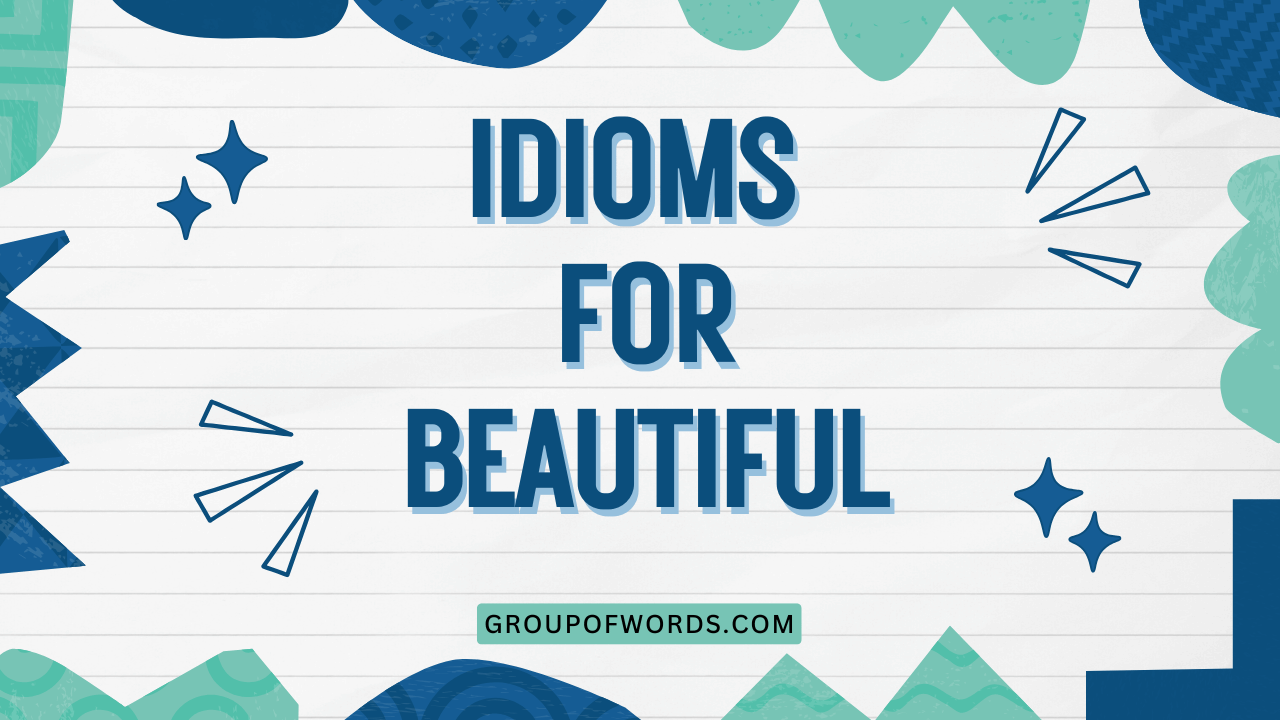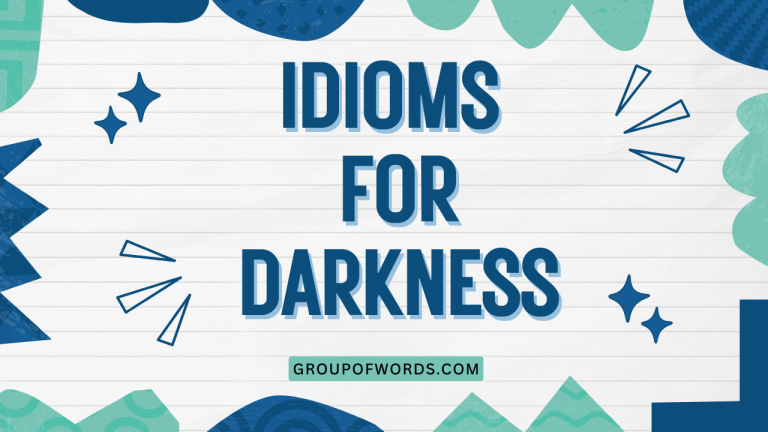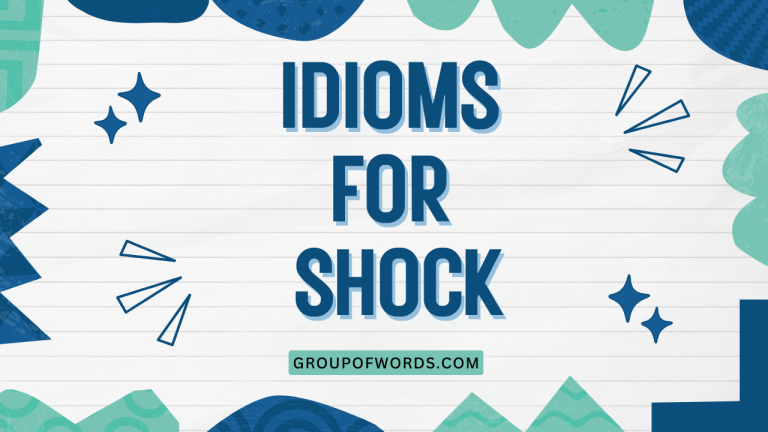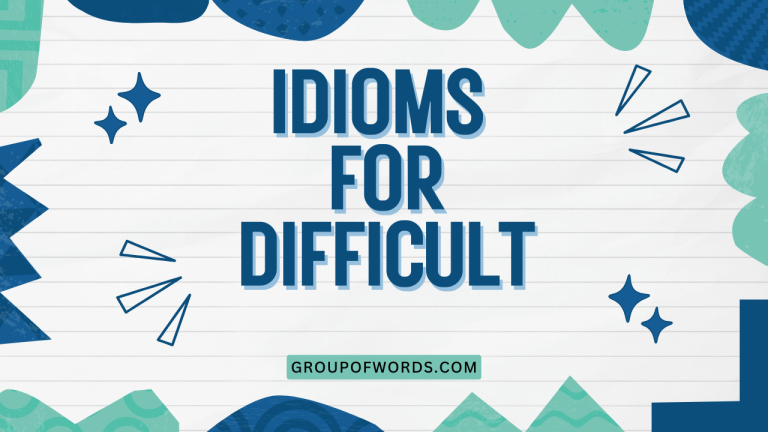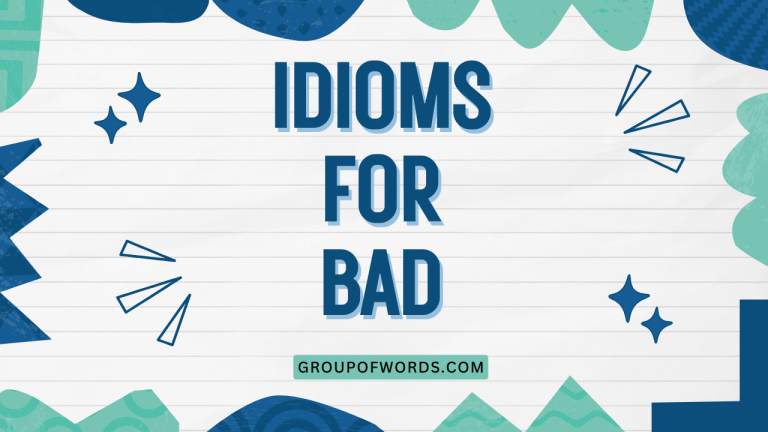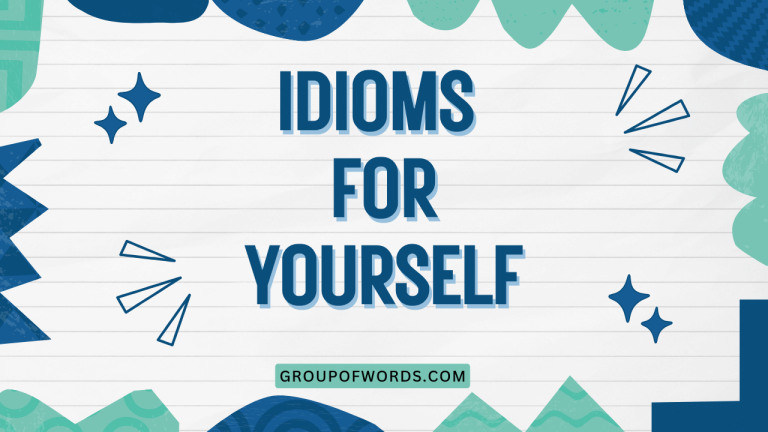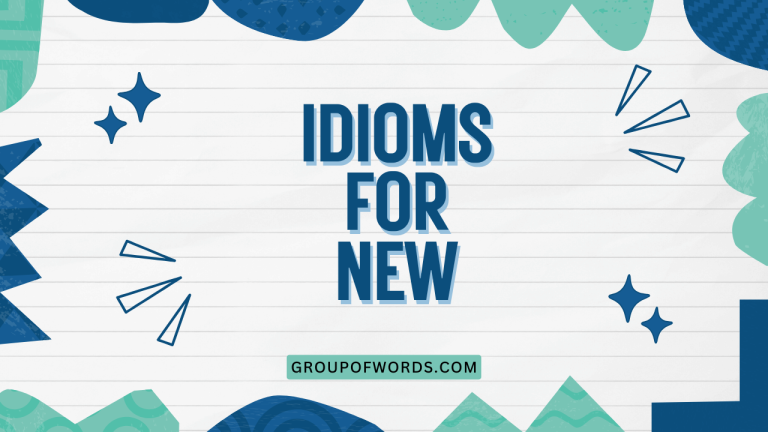Idioms for Beauty: Describing Loveliness in English
English is rich with idioms, offering colorful and expressive ways to describe beauty. Instead of simply saying someone is “beautiful,” you can use an idiom to add nuance, humor, or emphasis.
Understanding these idioms not only enhances your vocabulary but also allows you to appreciate the cultural context in which they are used. This article will explore a variety of idioms related to beauty, providing definitions, examples, and exercises to help you master their usage.
This guide is perfect for English language learners, writers, and anyone looking to spice up their descriptive language.
By the end of this article, you will have a solid grasp of common idioms for describing beauty, understand their appropriate contexts, and be able to use them confidently in your own speech and writing.
Table of Contents
- Introduction
- Definition: Idioms for Beauty
- Structural Breakdown of Idioms
- Types and Categories of Beauty Idioms
- Examples of Idioms for Beauty
- Usage Rules for Beauty Idioms
- Common Mistakes When Using Beauty Idioms
- Practice Exercises
- Advanced Topics: Nuances and Regional Variations
- Frequently Asked Questions (FAQ)
- Conclusion
Definition: Idioms for Beauty
An idiom is a phrase or expression whose meaning cannot be understood from the literal meanings of its individual words. Instead, an idiom has a figurative meaning that is known through common usage.
Idioms for beauty are phrases that describe someone or something as attractive, beautiful, or possessing desirable qualities, but do so in a non-literal way. These idioms add color and depth to descriptions, making them more engaging and memorable.
The classification of idioms for beauty often depends on the aspect of beauty they emphasize. Some idioms focus on physical appearance, while others highlight inner qualities or the beauty of nature.
The function of these idioms is to enhance communication by providing a more vivid and nuanced way to express admiration or appreciation. Understanding the context in which an idiom is used is crucial, as the same idiom can have different connotations depending on the situation.
For example, the idiom “easy on the eyes” refers to someone who is physically attractive. Similarly, “a heart of gold” describes someone with inner beauty and kindness.
The idiom “picture perfect” can describe a scene of natural beauty. Recognizing these nuances is key to using idioms effectively.
Structural Breakdown of Idioms
Idioms, by their nature, defy a strict structural breakdown because their meaning isn’t derived from their individual components. However, we can analyze their common patterns.
Many idioms for beauty involve:
- Similes: Comparing beauty to something else (e.g., “as pretty as a picture”).
- Metaphors: Describing beauty using figurative language (e.g., “a knockout”).
- Descriptive Adjectives: Using adjectives in a non-literal way (e.g., “drop-dead gorgeous”).
- Figurative Nouns: Employing nouns to represent beauty (e.g., “a vision”).
The structure often includes prepositions and articles that are essential to the idiom’s meaning, even if they don’t contribute literally. For instance, in “beauty is in the eye of the beholder,” the preposition “in” and the article “the” are crucial for the idiom’s overall structure and meaning.
Understanding these structural elements helps in recognizing and interpreting idioms, even if you’ve never encountered them before. The key is to look beyond the literal meaning and consider the overall figurative sense.
Types and Categories of Beauty Idioms
Idioms for beauty can be categorized based on the specific aspect of beauty they describe. Here are some common categories:
Physical Appearance
These idioms describe someone’s outward attractiveness, often focusing on features like face, body, or overall appearance. They can range from complimentary to slightly suggestive, depending on the idiom and context.
Inner Beauty
These idioms refer to a person’s character, kindness, and moral qualities. They highlight the beauty that comes from within, such as compassion, generosity, and integrity.
Natural Beauty
These idioms describe the beauty of nature, landscapes, or natural phenomena. They often evoke a sense of peace, wonder, and awe.
Stunning Beauty
These idioms emphasize an overwhelming or breathtaking level of beauty. They are used to describe someone or something that is exceptionally attractive or impressive.
Examples of Idioms for Beauty
Here are some examples of idioms for beauty, categorized by the aspect of beauty they describe:
Physical Appearance Examples
The following table provides examples of idioms related to physical appearance. Each example is accompanied by its meaning and a sample sentence.
| Idiom | Meaning | Example Sentence |
|---|---|---|
| Easy on the eyes | Pleasing to look at; attractive | She’s definitely easy on the eyes. |
| A sight for sore eyes | Someone or something welcome or pleasant to see | After a long day of hiking, the campsite was a sight for sore eyes. |
| Drop-dead gorgeous | Extremely attractive | The actress looked drop-dead gorgeous in her red dress. |
| As pretty as a picture | Very attractive or beautiful | The bride looked as pretty as a picture on her wedding day. |
| A knockout | An extremely attractive person | She was a real knockout in college. |
| Head-turner | Someone who is so attractive that people turn their heads to look | That new sports car is a real head-turner. |
| Good-looking | Attractive in appearance | He’s a very good-looking man. |
| Fair to middling | Moderately attractive | She’s fair to middling, not exceptionally beautiful but pleasant. |
| Beaming with beauty | Radiating beauty and happiness | She was beaming with beauty on her graduation day. |
| A vision | An exceptionally beautiful or impressive sight | In her wedding dress, she was a vision. |
| Stunning | Extremely impressive or attractive | The view from the mountaintop was stunning. |
| Radiant | Glowing with beauty and health | The new mother looked radiant. |
| Alluring | Attractive and tempting | Her alluring smile captivated him. |
| Captivating | Capable of attracting and holding interest; charming | The speaker had a captivating presence. |
| Exquisite | Extremely beautiful and delicate | The jewelry was exquisite. |
| Ravishing | Extremely attractive; entrancing | She looked ravishing in her gown. |
| Angelic | Resembling an angel; very beautiful and pure | Her angelic face was unforgettable. |
| Breathtaking | Extremely impressive or beautiful | The scenery was breathtaking. |
| Glamorous | Attractive in an exciting and special way | The movie star had a glamorous lifestyle. |
| Dazzling | Extremely impressive, beautiful, or skillful | Her performance was dazzling. |
| Graceful | Elegant and beautiful in movement or form | The dancer was graceful and poised. |
| Statuesque | Having a tall, dignified, and attractive figure | She had a statuesque beauty. |
| Winsome | Attractive or appealing in appearance or character | Her winsome smile charmed everyone. |
Inner Beauty Examples
The table below showcases idioms that describe inner beauty, highlighting positive character traits and virtues.
| Idiom | Meaning | Example Sentence |
|---|---|---|
| A heart of gold | A kind and generous nature | She has a heart of gold and is always helping others. |
| Beautiful inside and out | Attractive both physically and in terms of character | She’s beautiful inside and out, always kind and considerate. |
| A gem | A highly valued or cherished person | She’s a real gem; we’re lucky to have her on the team. |
| Salt of the earth | A person of admirable character; honest and reliable | He’s the salt of the earth, always willing to lend a hand. |
| A good egg | A kind and reliable person | He’s a good egg; you can always count on him. |
| Worth their weight in gold | Extremely valuable or helpful | Our nurse is worth her weight in gold, always caring for our patients. |
| A ray of sunshine | A person who brings happiness and positivity | Her cheerful attitude makes her a ray of sunshine in the office. |
| A true original | Someone with a unique and admirable character | He’s a true original, always thinking outside the box. |
| Golden-hearted | Extremely kind and generous | She’s a golden-hearted woman who volunteers at the homeless shelter. |
| A gentle soul | A kind and compassionate person | He’s a gentle soul who wouldn’t hurt a fly. |
| Kindred spirit | Someone who shares similar interests and values | We quickly realized we were kindred spirits. |
| A pillar of strength | Someone who provides unwavering support and stability | She was a pillar of strength during the crisis. |
| Compassionate | Feeling or showing sympathy and concern for others | Her compassionate nature made her a great therapist. |
| Benevolent | Well-meaning and kindly | The benevolent donor supported the local hospital. |
| Altruistic | Showing a selfless concern for the well-being of others | Her altruistic actions inspired many. |
| Philanthropic | Seeking to promote the welfare of others, especially by donating money to good causes | The family had a long history of philanthropic endeavors. |
| Magnanimous | Generous or forgiving, especially toward a rival or someone less powerful than oneself | His magnanimous gesture surprised everyone. |
| Noble | Having or showing fine personal qualities or high moral principles and ideals | He was a noble leader who always put others first. |
| Upstanding | Honorable and respectable | He was an upstanding member of the community. |
| Virtuous | Having or showing high moral standards | She was a virtuous woman known for her integrity. |
| Honorable | Worthy of respect or high regard | His honorable conduct earned him the trust of his peers. |
| Principled | Acting in accordance with morality and showing recognition of right and wrong | He was a principled man who stood up for what he believed in. |
Natural Beauty Examples
This table provides idioms that describe the beauty of nature, landscapes, and the environment.
| Idiom | Meaning | Example Sentence |
|---|---|---|
| Picture perfect | Extremely beautiful or ideal | The sunset over the ocean was picture perfect. |
| A hidden gem | A beautiful or valuable place that is not widely known | This secluded beach is a hidden gem. |
| Mother Nature’s finest | The most beautiful or impressive aspects of nature | The Grand Canyon is Mother Nature’s finest work. |
| A scenic view | A beautiful or picturesque landscape | The hotel room offered a stunning scenic view. |
| As fresh as a daisy | Looking or feeling fresh and attractive | After a good night’s sleep, she felt as fresh as a daisy. |
| A breath of fresh air | Something new and refreshing | Visiting the countryside was a breath of fresh air. |
| A sight to behold | Something impressive or beautiful to see | The Northern Lights are truly a sight to behold. |
| A natural wonder | A remarkable natural feature | The Great Barrier Reef is a natural wonder. |
| Like something out of a postcard | Extremely beautiful, as if from a picture postcard | The village looked like something out of a postcard. |
| A paradise on earth | An extremely beautiful and idyllic place | The tropical island felt like a paradise on earth. |
| Idyllic | Extremely pleasant, peaceful, and picturesque | The cottage was set in an idyllic location. |
| Serene | Calm, peaceful, and untroubled; tranquil | The lake was serene and still. |
| Pristine | In its original condition; unspoiled | The beach was pristine and untouched. |
| Majestic | Having or showing impressive beauty or dignity | The mountains were majestic in their grandeur. |
| Spectacular | Beautiful in a dramatic and eye-catching way | The fireworks display was spectacular. |
| Sublime | Of such excellence, grandeur, or beauty as to inspire great admiration or awe | The symphony was sublime and moving. |
| Heavenly | Resembling heaven; very beautiful or delightful | The garden was heavenly in its beauty. |
| Enchanting | Delightfully charming or attractive | The forest was enchanting and mysterious. |
| Mesmerizing | Capturing one’s complete attention; fascinating | The dance performance was mesmerizing. |
| Ethereal | Extremely delicate and light in a way that seems too perfect for this world | Her ethereal beauty captivated the audience. |
| Lush | Rich and abundant in vegetation | The rainforest was lush and vibrant. |
| Verdant | Green with grass or other rich vegetation | The valley was verdant and fertile. |
Stunning Beauty Examples
The table below provides idioms that describe an overwhelming or breathtaking level of beauty.
| Idiom | Meaning | Example Sentence |
|---|---|---|
| Knockout beauty | Extremely attractive and impressive | She was a knockout beauty at the party. |
| Show-stopping | Extremely impressive or attention-grabbing | Her dress was show-stopping. |
| Jaw-dropping | So amazing or impressive that it causes one’s jaw to drop | The acrobat’s performance was jaw-dropping. |
| Out of this world | Extremely good or impressive | The food at the restaurant was out of this world. |
| Beyond compare | So good or beautiful as to be unmatched | Her talent was beyond compare. |
| Exceedingly beautiful | Extremely or exceptionally beautiful | The sunset was exceedingly beautiful. |
| Unparalleled | Having no equal; unmatched | The artist’s skill was unparalleled. |
| Magnificent | Extremely beautiful, elaborate, or impressive | The palace was magnificent in its grandeur. |
| Resplendent | Attractive and impressive through being richly colorful or sumptuous | The peacock was resplendent in its plumage. |
| Splendiferous | Extremely magnificent; splendid | The party was splendiferous and lavish. |
| Astounding | Surprisingly impressive or notable | The magician’s trick was astounding. |
| Remarkable | Worthy of attention; striking | Her achievements were remarkable. |
| Incredible | Difficult to believe; extraordinary | The view from the summit was incredible. |
| Phenomenal | Remarkable or exceptional | The athlete’s performance was phenomenal. |
| Prodigious | Remarkably or impressively great in extent, size, or degree | The artist displayed prodigious talent. |
| Sublime | Of very great excellence or beauty | The music was sublime and uplifting. |
| Transcendent | Beyond or above the range of normal or merely physical human experience | The spiritual experience was transcendent. |
| Otherworldly | Relating to an imaginary or ideal world | The landscape had an otherworldly beauty. |
| Superlative | Of the highest quality or degree | The chef’s skills were superlative. |
| The epitome of beauty | The perfect example of beauty | She was the epitome of beauty and grace. |
Usage Rules for Beauty Idioms
Using idioms correctly requires understanding their nuances and appropriate contexts. Here are some general rules to follow:
- Context Matters: Consider the situation and audience. Some idioms are informal and may not be suitable for formal settings.
- Know the Meaning: Ensure you fully understand the idiom’s meaning before using it. Misusing an idiom can lead to confusion or miscommunication.
- Pay Attention to Tone: Some idioms can be sarcastic or humorous. Be mindful of the tone you want to convey.
- Avoid Overuse: While idioms can add color to your language, using too many can make your speech sound unnatural or forced.
- Consider Cultural Differences: Idioms can vary across cultures and regions. Be aware of potential differences in meaning or usage.
For example, while “drop-dead gorgeous” is a common compliment in many English-speaking countries, it might be considered too strong or informal in certain conservative settings. Similarly, an idiom like “a sight for sore eyes” is generally positive but could be misinterpreted if the listener is not familiar with the expression.
It’s also important to be aware of any regional variations in idiom usage. An idiom that is popular in one part of the English-speaking world might be uncommon or even unknown in another.
Common Mistakes When Using Beauty Idioms
Here are some common mistakes to avoid when using idioms for beauty:
| Incorrect | Correct | Explanation |
|---|---|---|
| She is a heart of stone. | She has a heart of gold. | “A heart of stone” means someone is unfeeling, while “a heart of gold” means someone is kind. |
| The view was picture-fully perfect. | The view was picture perfect. | The idiom is “picture perfect,” not “picture-fully perfect.” |
| He’s worth his weight in silver. | He’s worth his weight in gold. | The idiom is “worth his weight in gold,” indicating high value. |
| She is easy to see. | She is easy on the eyes. | “Easy to see” is literal, while “easy on the eyes” is an idiom for attractiveness. |
| He’s a bad egg. | He’s a good egg. | “A bad egg” refers to someone who is unreliable or dishonest, the opposite of the intended meaning. |
Another frequent mistake is misinterpreting the idiom literally. For example, someone might think “a sight for sore eyes” literally means someone with eye problems is being helped.
Understanding the figurative meaning is essential.
Furthermore, be cautious about mixing idioms. Combining parts of different idioms can create nonsensical phrases.
For example, saying “She’s as pretty as gold” doesn’t make sense because it mixes “as pretty as a picture” and “a heart of gold.”
Practice Exercises
Test your understanding of idioms for beauty with these exercises.
Exercise 1: Multiple Choice
| Question | Options | Answer |
|---|---|---|
| Which idiom describes someone who is physically attractive? | a) A heart of gold b) Easy on the eyes c) Salt of the earth d) A hidden gem | b) Easy on the eyes |
| Which idiom describes someone with a kind and generous nature? | a) Drop-dead gorgeous b) A scenic view c) A heart of gold d) A sight to behold | c) A heart of gold |
| Which idiom describes a beautiful and ideal scene? | a) Picture perfect b) A good egg c) A head-turner d) Worth their weight in gold | a) Picture perfect |
| Which idiom describes an extremely attractive person? | a) Salt of the earth b) A gem c) A knockout d) A ray of sunshine | c) A knockout |
| Which idiom describes someone honest and reliable? | a) Easy on the eyes b) Salt of the earth c) A hidden gem d) A vision | b) Salt of the earth |
| Which idiom describes something impressive to see? | a) A sight to behold b) A heart of gold c) Good-looking d) As fresh as a daisy | a) A sight to behold |
| Which idiom describes a new and refreshing experience? | a) A hidden gem b) A breath of fresh air c) A natural wonder d) A paradise on earth | b) A breath of fresh air |
| Which idiom describes someone who brings happiness and positivity? | a) A ray of sunshine b) A gentle soul c) A pillar of strength d) A kindred spirit | a) A ray of sunshine |
| Which idiom describes a very beautiful or delightful garden? | a) Lush b) Pristine c) Heavenly d) Majestic | c) Heavenly |
| Which idiom describes someone graceful and elegant? | a) winsome b) statuesque c) radiant d) graceful | d) graceful |
Exercise 2: Fill in the Blanks
Complete the following sentences with the appropriate idiom.
- After the makeover, she looked __________. (drop-dead gorgeous)
- The kindness she shows to everyone proves she has __________. (a heart of gold)
- The view from the top of the mountain was truly __________. (picture perfect)
- He is __________, always willing to help others. (salt of the earth)
- The secluded beach was __________. (a hidden gem)
- She’s __________, always bringing positivity to the office. (a ray of sunshine)
- His performance on stage was __________. (show-stopping)
- The landscape was __________, calm and untroubled. (serene)
- The flowers in the garden were __________. (lush)
- She looked __________ on her wedding day. (radiant)
Exercise 3: True or False
- “Easy on the eyes” describes someone unpleasant to look at. (False)
- “A heart of gold” describes someone kind and generous. (True)
- “Picture perfect” describes an ugly scene. (False)
- “A good egg” describes someone unreliable. (False)
- “A sight for sore eyes” describes something welcome to see. (True)
- “A hidden gem” describes a well-known place. (False)
- “Drop-dead gorgeous” describes someone average-looking. (False)
- “Salt of the earth” describes someone honest and reliable. (True)
- “Beyond compare” describes something easily matched. (False)
- “A ray of sunshine” describes someone who brings happiness. (True)
Advanced Topics: Nuances and Regional Variations
Advanced learners can delve deeper into the nuances and regional variations of beauty idioms. For example, some idioms may have subtle differences in meaning depending on the region.
The phrase “fit as a fiddle” might be more common in British English, while American English speakers might prefer “in great shape.”
Furthermore, the connotations of certain idioms can vary. An idiom like “pretty face” can be complimentary in some contexts but dismissive in others, implying that someone is attractive but lacks intelligence or substance.
Exploring the etymology of beauty idioms can also provide valuable insights. Understanding the historical origins of these phrases can shed light on their current meanings and cultural significance.
For instance, researching the origins of “a sight for sore eyes” reveals its connection to the relief one feels after seeing something pleasant after a period of discomfort or hardship.
Frequently Asked Questions (FAQ)
- What is an idiom?
An idiom is a phrase or expression whose meaning cannot be understood from the literal meanings of its individual words. It has a figurative meaning that is known through common usage.
- Why are idioms important in English?
Idioms add color, depth, and nuance to the English language. They allow for more expressive and engaging communication, and understanding them is crucial for comprehending native speakers.
- How can I learn more idioms for beauty?
Read widely, listen to native speakers, and pay attention to the context in which idioms are used. Online resources, idiom dictionaries, and language learning apps can also be helpful.
- Are idioms the same in all English-speaking countries?
No, idioms can vary across different English-speaking countries and regions. Some idioms may be more common in one area than another, and some may have different meanings.
- Can I use idioms in formal writing?
It depends on the idiom and the context. Some idioms are informal and may not be appropriate for formal writing, while others are more widely accepted. Consider your audience and the tone you want to convey.
- How do I avoid misusing idioms?
Always make sure you understand the meaning and context of an idiom before using it. If you’re unsure, look it up in a dictionary or ask a native speaker for clarification.
- What’s the difference between a simile and an idiom?
A simile is a comparison between two things using “like” or “as,” aiming for clarity. An idiom is a fixed expression with a figurative meaning, often unrelated to the literal words used. For example, “as pretty as a picture” is a simile, while “easy on the eyes” is an idiom.
- Is it okay to translate idioms directly from my native language?
No, it’s generally not a good idea. Idioms are culturally specific, and a direct translation is unlikely to convey the correct meaning or sound natural in English. It’s better to learn the English idioms directly.
Conclusion
Mastering idioms for beauty enhances your ability to describe and appreciate the world around you in a more vivid and expressive way. By understanding the definitions, structures, and usage rules of these idioms, you can confidently incorporate them into your speech and writing.
Remember to consider the context, tone, and cultural nuances to avoid misuse and ensure effective communication.
Continue to expand your knowledge of idioms through reading, listening, and practice. The more you expose yourself to the English language, the more naturally you will understand and use these colorful expressions.
Embrace the richness and diversity of English idioms to become a more fluent and articulate communicator.
